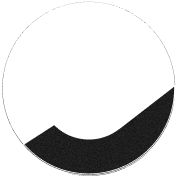Frequently Asked Questions
General
-
We don’t like noise but we do like being on point.
-
Kaizen is not about being prescriptive but we do have a lot of data on how and when you exercise and what you are aiming for so we can provide some nifty suggestions to suit
-
At the moment the planner only suggests running training.
-
Kaizen is linked to your strava or wearable and will only analyse data uploaded there.
-
You can adjust your goal to several race formats, to improve or to return from injury. Just use
Kaizen’s algorithm
-
Elevation is factored into Kaizen’s algorithm. This means you’ll see that Kaizen’s algorithm rewards hilly runs, compared to a flat run of the same distance & pace. Having said that, it's worth noting that our analysis suggests that elevation is less important than many runners think.
In short; you (mostly) get back on the downhill what you put in on the uphill.
It’s key to be clear we’re talking about elevation, not the surface underfoot. Hills and off-road running often go hand in hand, but for now Kaizen is focused primarily on road running. Of course off-road running can be effective training for a road race, but right now Kaizen doesn’t factor training surface into the algorithm.
-
Kaizen uses a range of training variables to predict race result to within 5% accuracy for 9 out of 10 races*. We’ll go into more detail below, but here’s a visual guide here’s Kaizen prediction compared to actual race result:
Our analysis has found that Kaizen’s algorithm stays accurate regardless of race speed and distance. Kaizen can predict race results for events as short as 3km and as long as 50km, and works equally well for race paces faster than 3min/km, and slower than 7min/km. This is a range that covers everything from the olympic marathon to a beginner runner completing their first 5k.
For the scientists among you, Kaizen’s prediction of race result comes with an R2 of 0.93, across several thousand observations.
The bottom line is that most of the time, Kaizen is able to predict your race pace to within 5sec/km. This is a seriously impressive level of accuracy, and it gets even better as Kazien has more of your training and racing history to analyze. So after each race you do, the prediction becomes more accurate for future races.
*We consider races which are maximal effort, flat, road races between 3 - 50km with good pacing where the athlete has logged at least one run per week in the last 2 months.
Training with Kaizen
-
Kaizen uses your expected pace to ‘ballpark’ your goal at the start of each week, before you have any runs recorded. This means that when you upload your first run the distance target might shift if your pace on the first run was faster or slower than expected.
The Kaizen planner is a great way to stay on top of this. By planning your week in advance you can see what the doughnut will look like if you do specific runs.
-
No! Kaizen uses distance, pace and elevation to calculate your weekly doughnut. So run faster and the required distance will be lower. Conversely, run slower and you’ll be free to get more distance in without overdoing things*. Elevation on your runs also matters, with more hills also meaning a slightly reduced distance is needed to achieve the same training load.
*isn’t more running what we all want from life?
